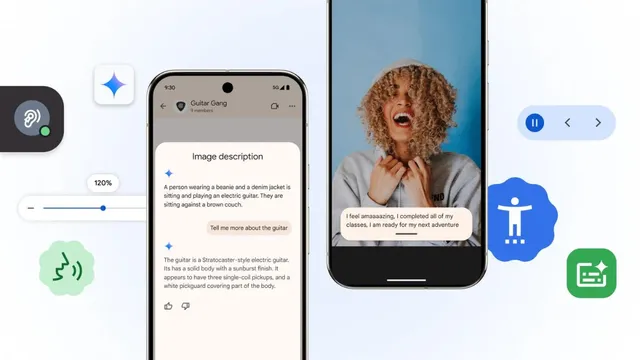- By Prateek Levi
- Fri, 16 May 2025 02:09 PM (IST)
- Source:JND
The race to provide the most accessibility features is gaining momentum, and only recently Apple introduced a few of them across its products, and Google is not staying behind in this race. On the occasion of Global Accessibility Awareness Day, Chrome announced some updates to Android and Chrome's accessibility features.
The tech giant expressed that it will be bringing some new AI and Gemini capabilities to Android for users with visual and hearing impairments. To achieve this, Google has enhanced its TalkBack feature and Android's screen reader with Gemini.
ALSO READ: GTA 6 Has Children In It? Screenshot Sparks Debate As Fans Spot A Kid!
Last year, TalkBack was integrated with Gemini AI, allowing users to receive image descriptions when alt text wasn’t available. Now, it’s getting even smarter. With the latest update, users can ask questions about the images or content displayed on their screen. That means if a friend sends you a photo of their new guitar, not only will Gemini describe it, but it can also answer follow-up questions about the guitar’s make, colour, or even other objects in the image. As Google explained, “That means the next time a friend texts you a photo of their new guitar, you can get a description and ask follow-up questions about the make and colour, or even what else is in the image.”
This gives Gemini a deeper level of on-screen awareness and creates a more interactive experience for users, especially those relying on accessibility tools.
Another major addition is Expressive Captions, which builds on the functionality of Live Captions. This tool uses AI to transcribe spoken content in real time—including not just speech but also other sounds like whistling or throat clearing. What makes it stand out is its ability to capture emotional tones, making the captions more contextually aware. The feature is currently rolling out in English across the U.S., U.K., Canada, and Australia.
Chromebooks are also getting their share of upgrades. The new Face Control feature allows users to navigate using facial gestures. Meanwhile, PDF interaction is becoming easier thanks to Optical Character Recognition (OCR), which enables screen reader compatibility, text selection, and searching within scanned documents.
These updates follow hot on the heels of Apple’s own accessibility enhancements, such as Nutrition Labels in the App Store, the Magnifier tool for Mac, and Live Captions on the Apple Watch. With both tech giants stepping up, accessibility is becoming smarter, faster, and more inclusive across platforms.

